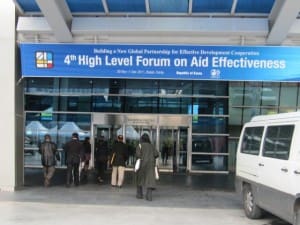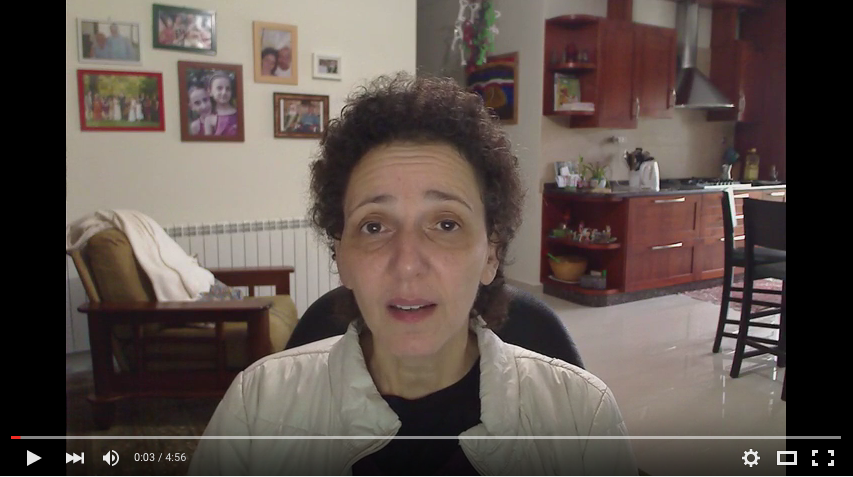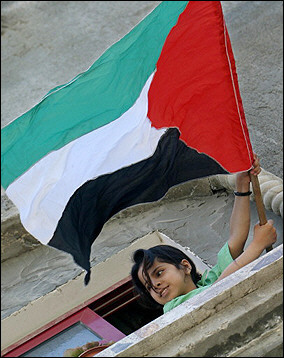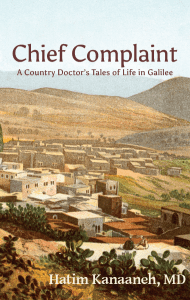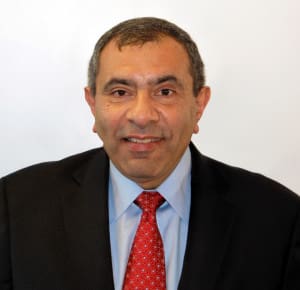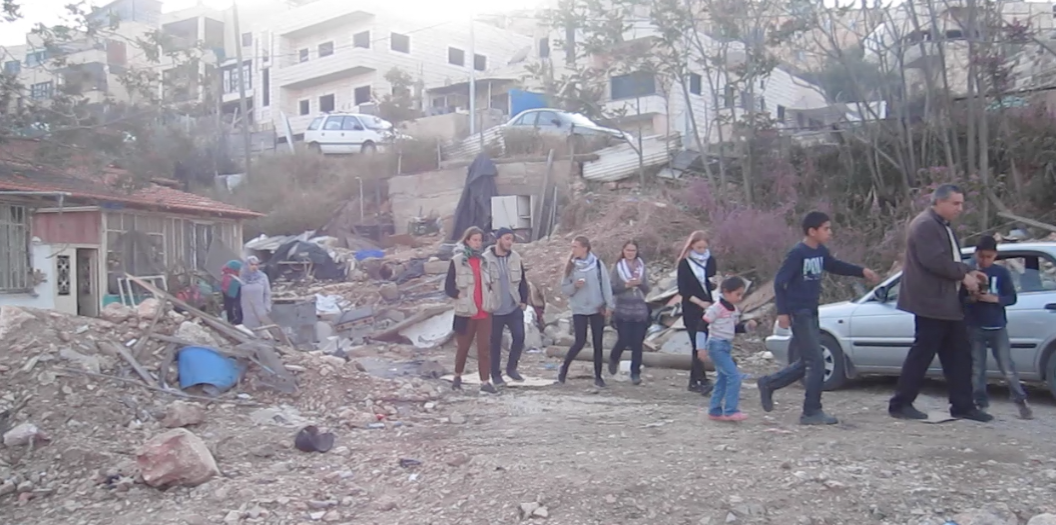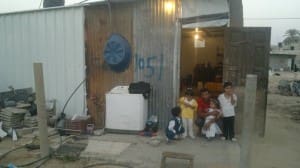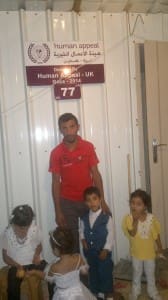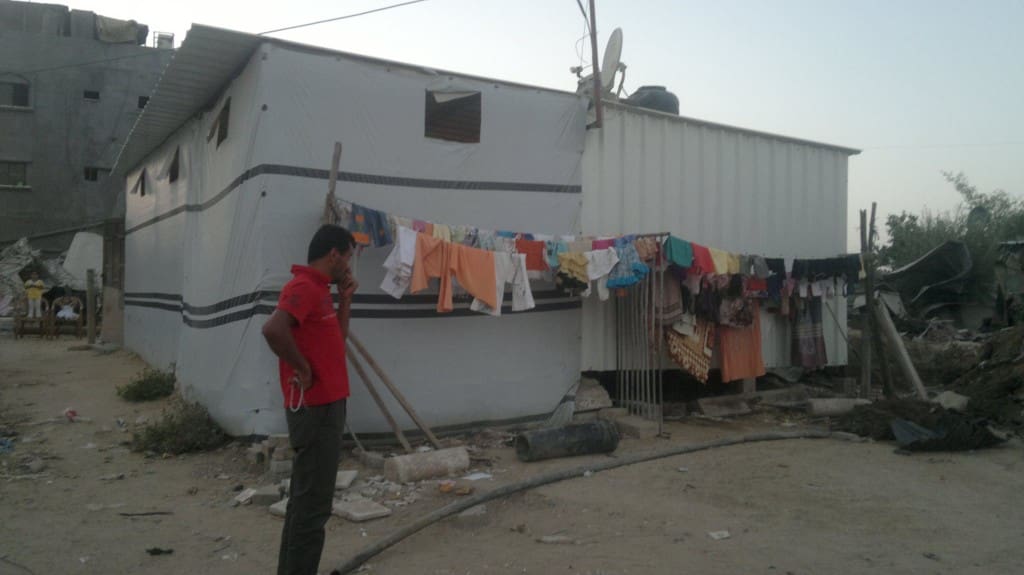When my phone rang before 5am on May 17 and Nurredin’s name flashed on the screen of my cell phone, I knew it was something bad.
“The bulldozers are here!” he said. “For your house?” I asked, suddenly wide awake. His home was partially demolished on March 31, 2015. “No. They are demolishing the Tutanji and Totah homes. Right now! They are demolishing right now!”
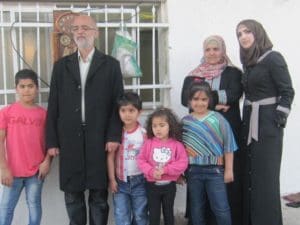
I had visited the Tutanjis before, when they expected a demolition and called for internationals to help them protect their home. When nothing happened and weeks went by, they thought they were safe. They were wrong.
Of course there was nothing I could do except cry and spread the word. Then I got in my car and went to visit. I took some film clips and Institute for Middle East Understanding put them into a very nice little video.
Later that week I went back to visit and Hoda Tutanji insisted on making me coffee, despite not having a kitchen! I wanted the world to see what it means to demolish the home of a family, so I made another little video.
That same week, three other homes in the neighborhood went under demolition order.
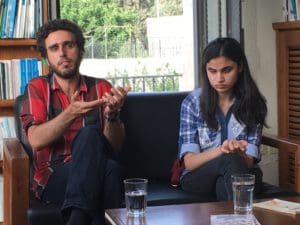
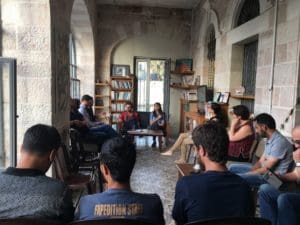
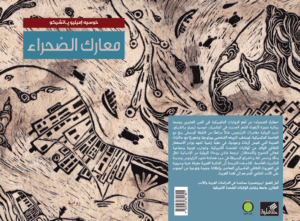
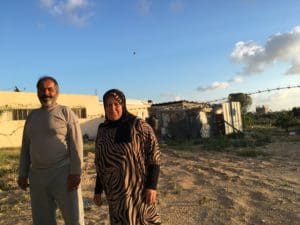
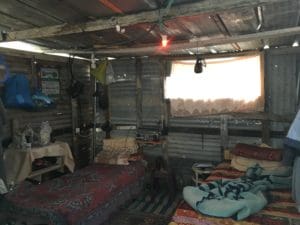
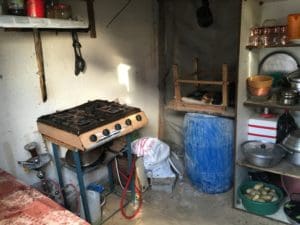
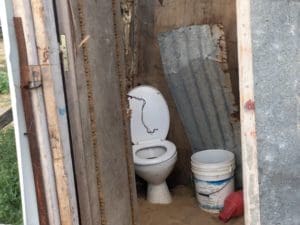
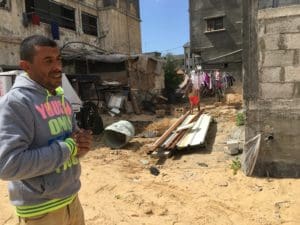
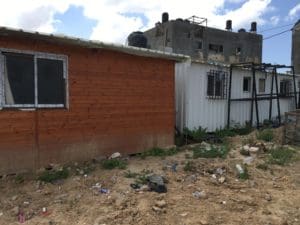 The aluminum caravan was so hot last summer, they slept outside. When the municipality wanted the land, Marwan moved his caravan near to his demolished home; that made the caravan even more unlivable. A donor provided a new, wooden caravan, but as the photo shows, it floods. There is no clarity if, when or how this family will ever get a new house.
The aluminum caravan was so hot last summer, they slept outside. When the municipality wanted the land, Marwan moved his caravan near to his demolished home; that made the caravan even more unlivable. A donor provided a new, wooden caravan, but as the photo shows, it floods. There is no clarity if, when or how this family will ever get a new house.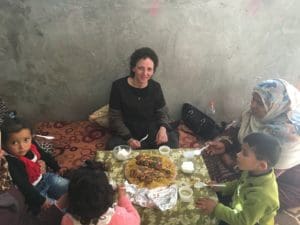
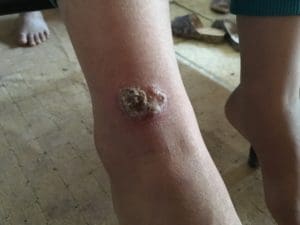
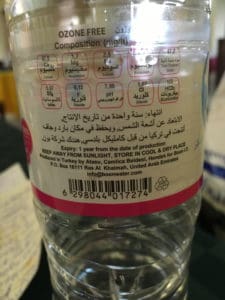
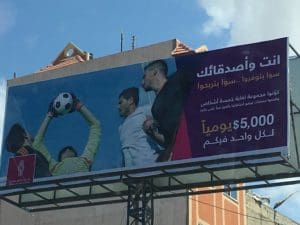
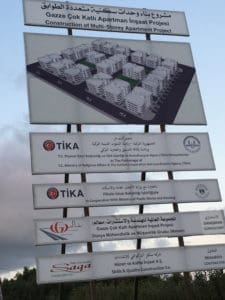
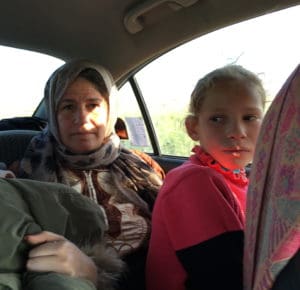
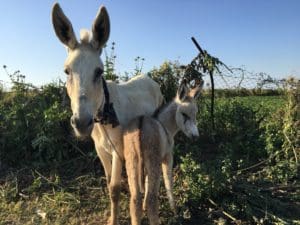 On the short drive, she showed us the rubble of her house, and her brother’s, and then, casually, she pointed out this donkey. “This donkey ran across the buffer zone to Israel and escaped the bombing that killed its owner. After the ceasefire, she came back, but the family who owned her never will.”
On the short drive, she showed us the rubble of her house, and her brother’s, and then, casually, she pointed out this donkey. “This donkey ran across the buffer zone to Israel and escaped the bombing that killed its owner. After the ceasefire, she came back, but the family who owned her never will.”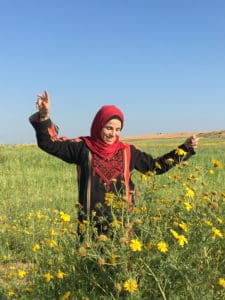
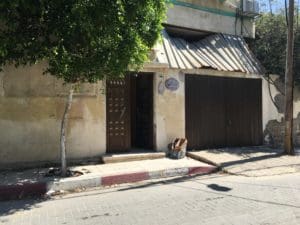
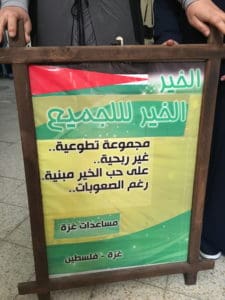 While I visited, various items were donated and various women came to shop for things they needed. The whole operation oozes with respect and gratitude and mutual help.
While I visited, various items were donated and various women came to shop for things they needed. The whole operation oozes with respect and gratitude and mutual help.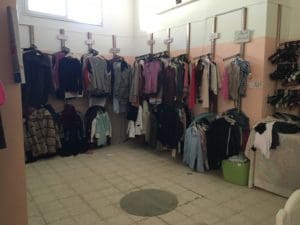 No sense of desperation or hopelessness there — Gazan society is doing what they can to help themselves. It was a good way to end my visit. But then, driving towards Erez Checkpoint on my way home, I began to feel a bit desperate. Had I used my precious time in Gaza fully? I started to snap photos indiscriminately to try to hold on to Gaza, to my gratitude for getting to visit this special place.
No sense of desperation or hopelessness there — Gazan society is doing what they can to help themselves. It was a good way to end my visit. But then, driving towards Erez Checkpoint on my way home, I began to feel a bit desperate. Had I used my precious time in Gaza fully? I started to snap photos indiscriminately to try to hold on to Gaza, to my gratitude for getting to visit this special place.